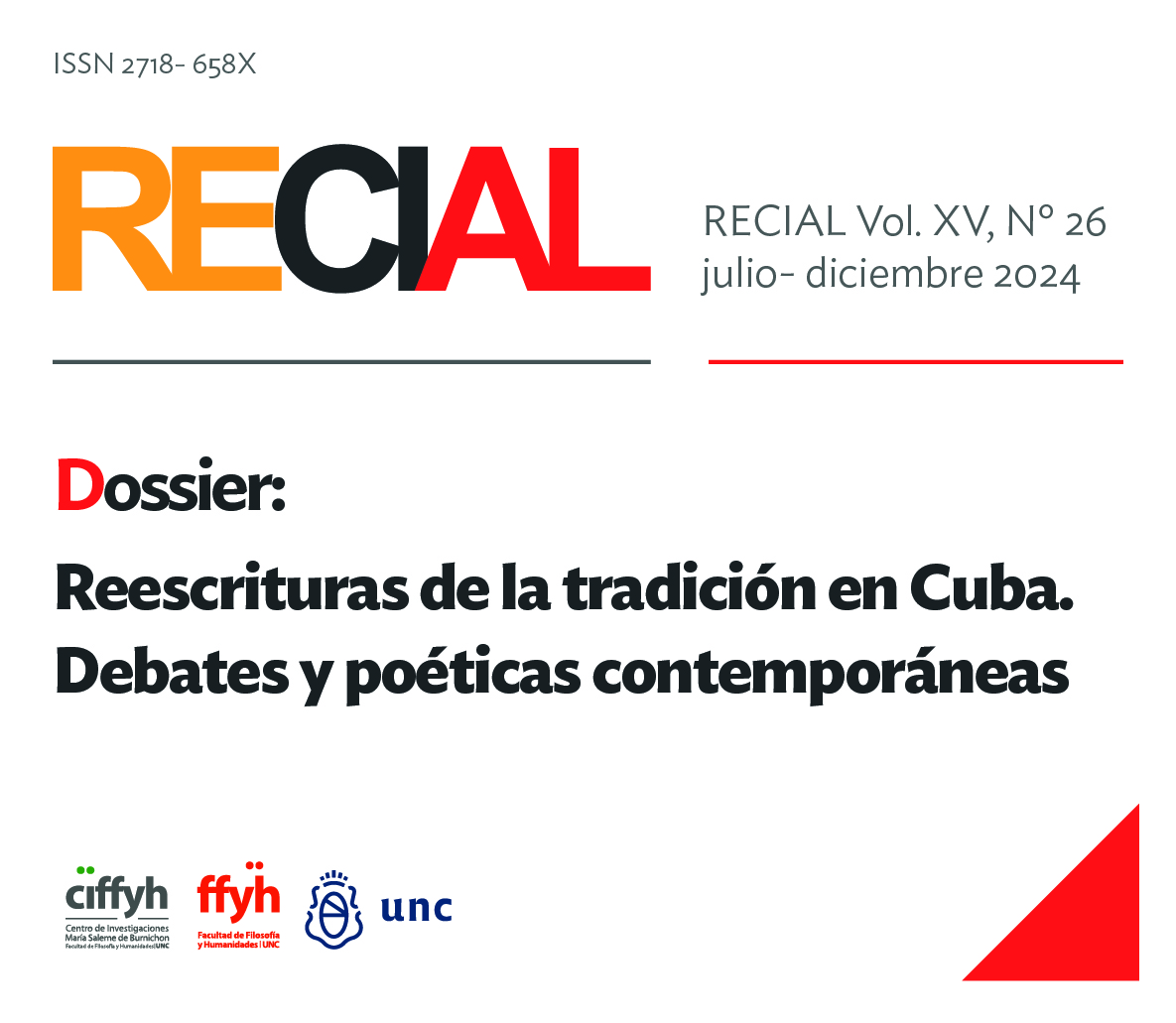Poetics and Performances of the Proper Name in Literature (1980-2020): An Introduction
DOI:
https://doi.org/10.53971/2718.658x.v16.n26.47211Keywords:
proper names, nominal supplementarity, hypersemanticity, social-legal name, autofictionAbstract
The personal proper name as a linguistic, onomastic, mythical, aesthetic-literary, philosophical, and social category is a transdisciplinary object that, despite its multiple forms of approach, has generally been restricted to unilateral considerations. With the extensive transformations of the notions of identity and subjectivity in the last four decades (1980–2020) as a result of the change of episteme from modernity to postmodernity, the proper name of the characters began to be presented, within an area of literary discourse in the Southern Cone, increasingly as a locus of aesthetic and subjective experimentation. If identity is tied to one’s name, then the ways of “doing things with names” that the texts rehearse would have consequences on the subjective-identitarian-textual sphere of the characters as well as, predictably, on the diegetic universes that they wander. I call these nominal poetics or performances of the name, whose approach requires, in my opinion, an interdisciplinary modulation. In this study, I provide an introduction, a general picture of the development of the three macro-valences that intervene, according to my hypothesis, in the nominal phenomena of the Southern Cone: nominal supplementarity, hypersemanticity (Barthes, 2011; Szaszak Bongartz, 2024), and the legal-social condition of the name in autofiction.
Downloads
References
Alberca, M. (2007). El pacto ambiguo. De la novela autobiográfica a la autoficción. Madrid: Biblioteca Nueva.
Arellano Ayuso, I. (1986). Semiótica y antroponimia literaria. Investigaciones semióticas I. Consejo Superior de Investigaciones Científicas.
Arfuch, L. (2007). El espacio biográfico: Dilemas de la subjetividad contemporánea. Buenos Aires: Fondo de Cultura Económica.
Austin, J. L. (1955). Cómo hacer cosas con palabras. Escuela de Filosofía Universidad ARCIS.
Bachmann, I. (1964). Gedichte, Erzählungen, Hörspiel, Essays. München: R. Piper.
Bajo Pérez, E. (2008). El nombre propio en español. Madrid: Arco Libros.
Ballester, X. (2008). La magia del nombre propio y la magia propia del nombre. Liburna, (1), 37-63.
Barthes, R. (2011). Proust y los nombres. El grado cero de la escritura seguido de Nuevos ensayos críticos. Buenos Aires: Siglo XXI.
Birus, H. (1978). Poetische Namengebung: zur Bedeutung der Namen in Lessings. Nathan der Weise (vol. 270). Göttingen: Vandenhoeck & Ruprecht.
Birus, H. (1987). Vorschlag zu einer Typologie literarischer Namen. Zeitschrifft für Literaturwissenschaft und Linguistik, 17(67), 38-51.
Bourdieu, P. (1997). Razones prácticas. Sobre la teoría de la acción. Barcelona: Anagrama.
Butler, J. (2007). El género en disputa: el feminismo y la subversión de la identidad. Barcelona: Paidós.
Colonna, V. (2012). Cuatro propuestas y tres deserciones (tipologías de la autoficción). En A. Casas (comp.), La autoficción. Reflexiones teóricas. Madrid: Arco/Libros.
Darrieussecq, M. (2012). La autoficción, un género poco serio”. En A. Casas (comp.), La autoficción. Reflexiones teóricas. Madrid: Arco/Libros.
Debus, F. (2002). Namen in literarischen Werken: (Er-) Findung-Form-Funktion. Stuttgart: Franz Steiner.
Deleuze, G. y Guattari, F. (2002). Mil mesetas: capitalismo y esquizofrenia. Valencia:
Pre-textos.
Derrida, J. (1986). De la gramatología. México: Siglo XXI.
Donnellan, K. S. (1970). Proper names and identifying descriptions. Synthese, 21(3-4), 335-358.
Donnellan, K. S. (2005). Referencia y descripciones definidas (1966). En L. M. Valdés Villanueva (comp.), La búsqueda del significado. Lecturas de Filosofía del Lenguaje. Madrid: Tecnos.
Elsen, H. (2005). Das Kunstwort. Muttersprache, 115(2).
Elsen, H. (2007). Die Aufgaben der Namen in literarischen Texten-Science Fiction und Fantasy. Zeitschrift für Literaturwissenschaft und Linguistik, (47).
Eltit, D. (1983). Lumpérica. Santiago de Chile: Las Ediciones del Ornitorrinco.
Foucault, M. (2002). La arqueología del saber. Buenos Aires: Siglo XXI.
Foucault, M. (2010). ¿Qué es un autor? Buenos Aires: El Cuenco de Plata.
Frege, G. (1998). Comentarios sobre sentido y referencia. En L. M. Valdés Villanueva (ed.), Ensayos de semántica y filosofía de la lógica. Madrid: Tecnos.
Frege, G. (2005). Sobre sentido y referencia (1892). En L. M. Valdés Villanueva (ed.), La búsqueda del significado. Lecturas de Filosofía del Lenguaje. Madrid: Tecnos
Gardiner, A. (1954). The theory of proper names: a controversial essay. London: Oxford University Press.
Genette, G. (1989). Figuras III. Barcelona: Lumen.
Gutiérrez Ordoñez, S. (1992). Introducción a la semántica funcional. Síntesis.
Hall, S. (2003). ¿Quién necesita ‘identidad’? En S. Hall y P. du Gay (comps.), Cuestiones de identidad cultural. Buenos Aires: Amorrortu.
Homero. (2008). La odisea. Buenos Aires: Agebe.
Kohlheim, V. (2018). Proper names in literature: ‘A reevaluation of all values’. Onoma, (53).
Kripke, S. (1995). El nombrar y la necesidad. México: Universidad Nacional Autónoma
de México.
Kristeva, J. (1981). El sujeto en cuestión en el lenguaje poético. En C. Levi-Strauss (ed.), Seminario: la identidad. Barcelona: Petrel.
Lamping, D. (1983). Der name in der Erzählung. Zur Poetik des Personennamens. Bonn: Bouvier.
Ludmer, J. (2010). Aquí América latina: una especulación. Buenos Aires: Eterna Cadencia.
Martinet, A. (1967). Connotations, poésie et culture. To Honor Roman Jakobson 2. De Gruyter Mouton.
Martínez, J. A. (1975). Propiedades del lenguaje poético. Oviedo: Archivum.
Mill, J. S. (1882). A system of logic, ratiocinative and inductive, being a connected view of the principles of evidence and the methods of scientific investigation. New York: Harper & Brothers.
Palti, E. J. (2003). El ‘retorno del sujeto’: subjetividad, historia y contingencia en el pensamiento moderno. Prismas, (7), 27-49.
Pottier, B. (1976). Lingüística general. Madrid: Gredos.
Proust, M. (1998). En busca del tiempo perdido. I. Por el camino de Swann. Salamanca: Alianza.
Rancière, J. (2009). El reparto de lo sensible: Estética y política. Santiago de Chile: Lom.
Requena Jiménez, M. (2012-2013). Voces, nominatio y mutatio nominis. Saitabi. Revista de la Facultat de Geografia i Història, (62-63), 257-280.
Ricoeur, P. (2006). Sí mismo como otro. México: Siglo XXI.
Sartre, J. P. (1957). ¿Qué es la literatura? Buenos Aires: Losada.
Searle, J. R. (2005). Nombres propios y descripciones (1967). En L. M. Valdés Villanueva (comp.), La búsqueda del significado. Lecturas de Filosofía del Lenguaje. Madrid: Tecnos.
Sibilia, P. (2012). La intimidad como espectáculo. Buenos Aires: Fondo de Cultura Económica.
Scarano, L. (2010). Las voces del compromiso: sujeto social y nombre propio. Compromisos y palabras bajo el franquismo. Actas del Congreso Recordando a Blas de Otero (1979-2009).
Shakespeare, W. (s. f.). Romeo y Julieta. Madrid: R. Berenguillo. Versión digital recuperada de https://www.cervantesvirtual.com/obra-visor/julieta-y-romeo--0/html/ff0366ae-82b1-11df-acc7-002185ce6064_140.html
Strawson, P. F. (1970). Phrase et acte de parole. Langages, (17).
Strawson, P. F. (2005). Sobre el referir (1950). En L. M. Valdés Villanueva (comp.), La búsqueda del significado. Lecturas de Filosofía del Lenguaje. Madrid: Tecnos.
Szaszak Bongartz, U. (2023). Ensayos excéntricos de un modelo semántico de los nombres propios para los estudios literarios. Onomástica desde América Latina, 4.
Szaszak Bongartz, U. (2024). Fulgor y temblor del nombre propio: Poéticas y performances nominales en la narrativa del Cono Sur (1980-2020) (Tesis doctoral). Facultad de Filosofía y Letras, Universidad de Buenos Aires.
Topuzian, M. (2008). Sujeto, autor y escritor en el eclipse de la teoría (Tesis doctoral). Facultad de Filosofía y Letras, Universidad de Buenos Aires.
Valencia, S. (2010). Capitalismo gore. Madrid: Melusina.
Žižek, S. (2003). El sublime objeto de la ideología. Buenos Aires: Siglo XXI.
Downloads
Published
Issue
Section
License

This work is licensed under a Creative Commons Attribution-NonCommercial-ShareAlike 4.0 International License.
Aquellos/as autores/as que tengan publicaciones en esta revista, aceptan los términos siguientes:
- Los/as autores/as conservarán sus derechos de autor y garantizarán a la revista el derecho de primera publicación de su obra, el cuál estará simultáneamente sujeto a la Licencia de reconocimiento de Creative Commons que permite a terceros compartir la obra siempre que se indique su autor y su primera publicación esta revista.
- Los/as autores/as podrán adoptar otros acuerdos de licencia no exclusiva de distribución de la versión de la obra publicada (p. ej.: depositarla en un archivo telemático institucional o publicarla en un volumen monográfico) siempre que se indique la publicación inicial en esta revista.
- Se permite y recomienda a los/as autores/as difundir su obra a través de Internet (p. ej.: en archivos telemáticos institucionales o en su página web), luego de su publicación en la revista. (Véase El efecto del acceso abierto).

























